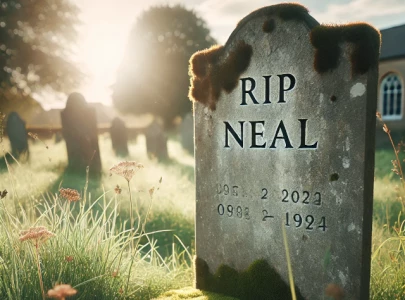Moreover, both parties promised to hold local government elections in their election manifestos. After parliamentary elections in 2008, the parties formed coalition governments in the centre and the provinces. It is worth mentioning here that other coalition partners, such as the ANP and the MQM, too, were committed to holding local government elections. All the ruling parties continued promising to hold local government elections for the last four years, but conveniently kept on delaying them unless the superior courts directed them to do so. Nawaz Sharif would not tire talking about the CoD, but in the province ruled by his party, local body elections have not been held.
Furthermore, all parties represented in parliament unanimously passed the 18th, 19th and 20th constitutional amendments. They also agreed on the NFC Award. But, they intentionally ignored amending Article 140-A. This article says that local government is the third tier of the governance structure but is silent on the frequency of local council elections. Why has the ruling elite denied ordinary Pakistanis a chance to elect local representatives. Since the scope of this article limits me to focus on the proposed bill of the Punjab government, I would leave this question for scholars to inquire.
The proposed bill clearly violates the spirit of Pakistan’s Constitution, democracy and Article 10 of the Charter of Democracy. Citing Article 140-A of the Constitution and Clause 10 of the CoD will help us understand the stark difference between the proposed bill and what the Constitution envisages on the matter. The article says: “Each province shall, by law, establish a local government system and devolve political, administrative and financial responsibility and authority to the elected representatives of the local governments”. And Clause 10 of the CoD has some similarities with Article 140-A. It says: “Local bodies election will be held on a party basis … and constitutional protection will be given to the local bodies to make them autonomous and answerable to their respective assemblies as well as to the people through regular courts of law”.
Both of the above-cited Articles clearly state that there must be political, administrative and financial devolution; local bodies should be autonomous and accountable to the public. I will avoid discussing financial and administrative devolution and focus only on the political and representational aspects as mentioned in the proposed bill of the ‘revolutionary’ leader of the Punjab government.
First, according to Clause 14(1) of the bill, “all members of the village panchayat including its sarpunch [head] shall be nominated by the government. This clause denies people the right to elect their representatives and, therefore, a blatant violation of Article 140-A. This is neither a political devolution nor a democracy as the nominated members of the panchayats will be accountable only to those who nominated them, i.e., government officials. Hence, the bureaucracy is being further empowered in the proposed law. Moreover, all the sarpunchs of all panchayats falling in the union council shall become ex-officio members of their respective union council.
Though the bill is silent about the total number of seats in the union council, it gives a breakdown of the reservation of quota for various marginalised and non-marginalised groups. Five per cent of the seats are reserved for each of the following categories: peasant/worker, minorities, youth and technocrats, while 33 per cent have been set aside for women. This constitutes 53 per cent of the total house strength and means that only 47 per cent of the total seats will be filled through an election. Moreover, all sarpunchs will also be members of union council. After the completion of selection/election process directly elected members will become a minority but hold control of the house as they had nominated and elected the members against the quota seats. The mischief of the bill is hidden in making sarpunchs members of union councils. The ratio of elected and selected members will be even worse in other tiers of the local councils. For instance, for the ‘markaz council’, a new tier of the local government system under the proposed bill, the government shall have the authority to nominate government officials as its members. The clause which allows the government to do this, however, does not say how many of the council members will be civil servants. This seems to clash with Clause 25 (e) of the same bill, which disqualifies any government official from being a member of any local council.
Regarding the filling of the quota seats, it is likely that nominees of the bureaucracy will capture most of them. We have seen this take place in the case of reserved seats for women in the National Assembly and the provincial assemblies, where the political leadership has usually nominated women related to senior leaders.
The proposed bill also envisages the creation of a local government board. Though all councils shall contribute financially in running the affairs of the said board, they will have no authority over its governance and it is, in fact, the provincial government, which will control it. Furthermore, the provincial government will have the right to dissolve any elected council and it will be empowered to do this without assigning any reason. Also, the bill is silent on whether local council election will be held on a party basis or not.
It appears from a reading of the proposed legislation that it is not only an anti-people bill but also seems to contain anomalies, which could have been avoided. Moreover, I would not hesitate in suspecting the intentions of the provincial government since the bill could be part of an effort to social gerrymander the next local bodies elections so as to achieve positive results for the ruling party in the province.
In short, the new bill looks like a replica of the two-centuries-old British local self-government system that was controlled by nominees and employees of the colonial administration. Therefore, all democrats and civil society organisations should reject this proposed bill of the Punjab government.
Published In The Express Tribune, June 23rd, 2012.
COMMENTS (15)
Comments are moderated and generally will be posted if they are on-topic and not abusive.
For more information, please see our Comments FAQ












We really need a separate constitutional court. There has been absolutely no relief to the common people through the current judiciary. Usually cases should be based on first come first served basis. But here we have some favorites getting relief immediately, and common people like me are made to think like we are fools only to be exploited by this chief justice to fight his and his corrupt son’s battles.
good show. support musharaf with such naked arguments. donot hide under slogans of democracy, decentralization, human rights etc. musharaf broke constitution in oct 199, it is not a fabricated story. musharaf used decentralization system , like zia used Islam just to protect military rule. musharf used enlightened moderation and some liberals supported it. 3rd tier is essential and decentralization is good for people but not on the cost of political freedom, not on the name of provincial autonomy. adeel, am not in favour of non party base elections yet i think a councillor or mayor after election should act as councillor or mayor and should hold his party membership for that period or u can suggest many other things too.
The root problem is that PML-N and PPP do not understand local government is an economic tool. China knew that by 1970s;but, Pakistanis are not as intelligent so they still have not figured that out.
dear sarwar bari, you stopped short of pronouncing support for Musharraf's lgo which was a foreign pushed agenda to create in Pakistan a hundred-plus mini-states. The system was heavily funded by foreign donors in the name of financial, technical and institutional support. and off course our NGOs were there like always to partake of the booty. It was amazing how a conspiracy was hatched to make provinces meaningless by devolving their powers to districts but not devolving to them in turn powers from the center. Do you realize how grave is the law and order vacuum created by that system? do you realize how much has the writ of the state been challenged and weakened by that system? wouldn't it be better to create more autonomous provinces instead? I also want to understand your motives here. what were you doing after lgo 2001? how much did you benefit from that system if you were a part of "the financial, technical and institutional support?" I am all for the colonial local government system we inherited. if it ain't broke, don't fix it. if we can't make new institutions, we must not destroy the old ones at least.
@aamir riaz: If you want that political parties remain dependent on bradaris, ethincity, tribes then go ahead with non-party elections. But to free the party of such influences, we have to stop these non-party elections.
Bureaucracy needs to be depoliticized. Experienced, capable and honest bureaucrats are shackled by powerful politicians who pursue their own agendas. Ministers take up portfolios they are ill equipped to handle and instead of utilizing the abilities of bureaucrats, engineers, etc they choose to use, manipulate and restrict them for their own gains.
@adeel ahmed: there is a debate on this issue. just check it what happens in other countries. a district head may have support of any political party yet after election he acts as a myar or district head only. i think in case of student unions and district system political parties should have role od advisers. u cannot exclude role of political parties as it is against democratic norms. yet we can find more ways with political consensus.
The provisions in the Constitution are inadequate. This allows Provincial governments free play in this matter..We should have one set of local government structure and that should be incorporated and protected by the Constitution.
@aamir riaz: If the Local Bodies elected people will be on party ticket and election on party basis then they will be loyal to party but if the election on non-party basis and elected people are in no bounding then they will be free to support marshal law in case. So, PML-N is providing good opportunity for next marshal law administrator
irony, those who sported musharaf referendum, who were part and parcel and defender of mushraf local bodies act now a days ready to analyses issues of local bodies. like Islam, military elite from ayub to mushraf used local bodies against politicians and provinces smartly. if current politicians and provincial governments have reservations against local government systems it was due to marshalla regime activities. i am in favor of 3rd tier yet i will not blame politicians for delay but i will blame marshalla regimes for their misuse. political consensus is essential at federal level and one should amend constitution first, before announcing new local bodies poll in provinces. elected tier should be supreme at federal, provincial and district levels. we all knew that no provincial govt hold local bodies, neither in Islamabad nor in other provinces. we should write facts before analyses whole phenomenon.
They are shaming Pakistan! Which century do they think this is the 18th? Is Pakistan still under colonial rule. Certainly looks like it.
Nice Analysis, either PML-N is afraid of defeat or want to buy uncommitted people for general election
A very objective analysis. Pakistan's power architecture is full of irony. Democracies are centralized and dictatorships are de-centralized (not because of their noble intent but because of their attempts to dismantle traditional power structures and establish alternate bases of power).